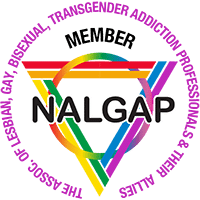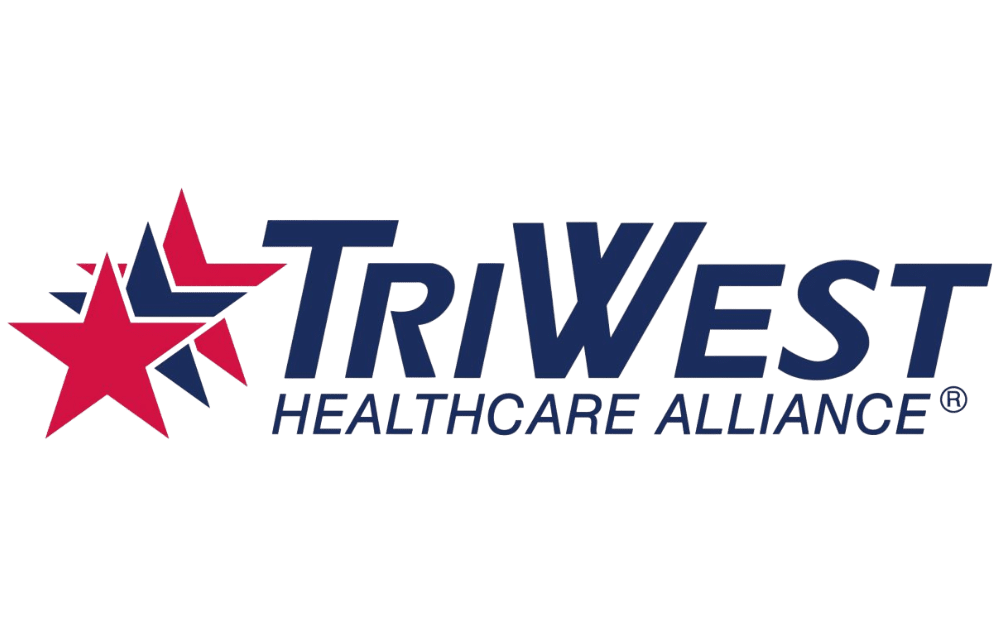Colorado rehabs
Exploring Colorado Rehabs
Colorado is renowned for its breathtaking landscapes and vibrant outdoor lifestyle, but it’s also a hub for some of the nation’s top-tier rehabilitation centers. With the increasing demand for specialized addiction treatment, Colorado rehabs have stepped up to create tailored programs that cater to diverse needs. These centers offer an array of personalized therapies ranging from traditional cognitive behavioral methods to innovative holistic treatments. Emphasizing community support and long-term recovery, Colorado rehabs provide an environment where individuals can heal and find hope outside the confines of their struggles.
Evidence-Based Therapies
The foundation of effective addiction treatment lies in evidence-based therapies. Reputed Colorado rehabs, such as those incorporated by Mile High Recovery Center, blend these traditional methods with innovative practices to ensure comprehensive care. Cognitive Behavioral Therapy (CBT) and Dialectical Behavior Therapy (DBT) are staples in the treatment protocols. These therapeutic approaches are proven to help individuals identify and change destructive thought patterns that contribute to their addiction.
Key Components of Evidence-Based Work
- Behavioral therapies focused on modifying harmful habits.
- Incorporation of psychotherapy to address underlying mental health issues.
- The use of Motivational Enhancement Therapy to encourage patient engagement.
Such therapies are often combined with medication-assisted treatments (MAT) to effectively manage withdrawal symptoms and reduce cravings.
Holistic Approaches in Rehab
In the quest for complete healing, Colorado rehabs are increasingly embracing holistic treatments. These practices aim to nurture the mind, body, and spirit, recognizing that addiction affects all facets of an individual’s life. Mile High Recovery Center has pioneered several holistic approaches, offering therapies like art and music therapy, equine-assisted therapy, and adventure therapy.
Holistic Treatment Benefits
- Improved mental wellness through creative expression.
- Enhanced physical health and resilience from outdoor activities.
- Spiritual growth and mindfulness cultivated through practices like yoga and meditation.
This diverse treatment palette provides patients with a well-rounded recovery experience, fostering long-term wellness beyond sobriety.
Dual Diagnosis Care
Many individuals seeking help at Colorado rehabs present with co-occurring mental health disorders. Dual diagnosis care is an essential offering at facilities like Mile High Recovery Center, which addresses both addiction and mental health challenges in a coordinated manner. Conditions such as anxiety, depression, PTSD, and bipolar disorder require integrated treatment plans that simultaneously tackle substance use disorders.
Comprehensive Dual Diagnosis Treatment
Clinicians employ a variety of techniques, ensuring that mental health and addiction are addressed with equal care. By offering therapies that cater to both conditions, patients experience a more cohesive and effective healing process. As a result, dual diagnosis care in Colorado rehabs significantly enhances the chances of sustained recovery.
Specialized Programs and Populations
Colorado rehabs are committed to offering specialized programs that cater to unique populations. Facilities like Mile High Recovery Center recognize the importance of addressing specific needs through tailored programs. For instance, they provide family therapy to help mend relationships strained by addiction, and LGBTQ+ friendly environments to ensure everyone feels respected and safe during recovery.
There are also specialized tracks for veterans, who may have service-related trauma, and adolescents, who require age-appropriate interventions. These targeted approaches ensure that everyone, regardless of their background or circumstance, receives the care they need to thrive.
Importance of Aftercare and Alumni Support
The journey to recovery doesn’t end upon completion of a treatment program. Colorado rehabs are well aware of the pivotal role that aftercare and alumni support play in sustaining long-term sobriety. Mile High Recovery Center excels in creating a supportive community through its active alumni network.
Elements of Effective Aftercare
- Sober living arrangements that offer a smooth transition back to everyday life.
- Ongoing therapy sessions and support groups to reinforce recovery skills.
- Engagement in community activities to foster a sense of belonging and purpose.
This continued support system helps individuals navigate post-treatment challenges, significantly reducing the risk of relapse.
Benefits of Location and Environment
Colorado’s spectacular environment serves as an ideal backdrop for recovery. The state’s natural beauty and abundance of outdoor adventures are seamlessly integrated into many rehab programs. Mile High Recovery Center, located in Denver’s City Center, utilizes this advantage by offering access to both urban amenities and outdoor therapeutic activities.
Adventure therapy, which includes activities like hiking and rock climbing, promotes physical health and mental clarity. Such experiences not only enhance the therapeutic process but also inspire a renewed zest for life among individuals in recovery.
Collaborative Care Models
Effective rehabilitation requires collaboration among various healthcare providers. Colorado rehabs, including Mile High Recovery Center, employ a collaborative care model to streamline transitions of care and improve patient outcomes. This model emphasizes communication between treatment centers, insurers, and local healthcare providers.
Key Aspects of Collaborative Care
- Referral relationships to ensure seamless access to additional healthcare resources.
- Insurance coordination to simplify reimbursement processes and reduce financial stress for patients.
- Multi-disciplinary teams that include clinicians with personal recovery experience, offering empathetic and informed care.
Through these collaborative efforts, Colorado rehabs provide an integrated approach that is both efficient and patient-centered.
Industry Recognition and Accreditation
Accreditation is a testament to a rehab center’s commitment to quality care. Colorado rehabs, such as Mile High Recovery Center, are recognized within the industry, boasting affiliations with organizations like the Joint Commission and NALGAP. LegitScript verification further attests to their adherence to high standards.
These credentials assure prospective patients and their families that the care provided meets nationally accepted safety and efficacy benchmarks. Accreditation is not just a badge of honor but a critical component in fostering trust and confidence among those seeking treatment.
What distinguishes Colorado rehab centers from others across the country?
Colorado rehab centers are known for their integration of the state’s natural beauty into recovery programs, offering therapeutic activities like hiking and adventure therapy. This unique approach helps individuals reconnect with themselves and nature while fostering physical and mental wellness. The emphasis on holistic treatments alongside traditional therapies sets these centers apart by addressing the mind, body, and spirit as interconnected components of recovery. Personalization is another hallmark, with programs designed to meet diverse needs, from adolescents to veterans and LGBTQ+ individuals.
Why is accreditation important when choosing a rehab center?
Accreditation from recognized organizations like the Joint Commission ensures that a rehab center meets rigorous safety and efficacy standards. This certification signals to prospective patients that the center provides high-quality care that adheres to nationally accepted guidelines. Choosing an accredited center such as Mile High Recovery Center can offer peace of mind, knowing that the treatment provided is trusted and regularly evaluated for excellence.
How do evidence-based therapies enhance the effectiveness of addiction treatment?
Evidence-based therapies such as Cognitive Behavioral Therapy (CBT) and Dialectical Behavior Therapy (DBT) are grounded in scientific research, providing structured and proven approaches to modify harmful behaviors and thought patterns. These therapies are crucial in helping individuals understand their addiction and develop healthier coping mechanisms. Mile High Recovery Center integrates these therapies with innovative practices to ensure a comprehensive treatment approach, enhancing both immediate and long-term recovery outcomes.
What is dual diagnosis care, and why is it crucial for some individuals in recovery?
Dual diagnosis care addresses the coexistence of substance use disorders and mental health issues, such as anxiety or depression. Recognizing and treating both conditions simultaneously is essential for effective recovery. If mental health disorders are left unaddressed, they can significantly hinder addiction treatment progress. At Mile High Recovery Center, the integrated approach ensures that individuals receive coordinated care that targets both addiction and mental health, supporting overall well-being and reducing relapse risks.
What benefits do holistic approaches offer in addiction recovery?
Holistic therapies, such as art therapy, equine-assisted therapy, and yoga, address more than just the physical aspects of addiction. They nurture emotional and spiritual health, providing a sense of peace and balance. Engaging in creative and physical activities can lead to profound personal insights and emotional release, which are vital in the healing process. These approaches at Mile High Recovery Center enrich the recovery experience by cultivating resilience and mindfulness, contributing to long-lasting transformation.
Why is aftercare and alumni support integral to sustained recovery?
Completing a rehab program is just the beginning of the recovery journey. Aftercare and alumni support provide ongoing resources and community connections that help individuals navigate the challenges of post-treatment life. Participating in alumni groups and support activities solidifies recovery skills and offers a sense of belonging. Mile High Recovery Center emphasizes this by creating robust alumni networks, facilitating continuing care that significantly lowers the risk of relapse and enhances long-term sobriety.
How do specialized programs cater to unique populations in rehab settings?
Specialized programs are designed to meet the unique needs of specific groups, such as veterans, LGBTQ+ individuals, or adolescents. By tailoring therapy modalities and creating inclusive environments, centers like Mile High Recovery Center ensure that every individual feels respected and supported during their recovery. These programs address particular challenges and experiences of each group, providing targeted care that enhances personal relevance and effectiveness, fostering higher engagement and successful outcomes.
What role do collaborative care models play in addiction rehabilitation?
Collaborative care models facilitate seamless transitions and comprehensive treatment by promoting communication among healthcare providers, treatment centers, and insurers. This approach ensures that patients receive coordinated, continuous care without unnecessary delays or barriers. At Mile High Recovery Center, collaboration streamlines processes, making it easier for individuals to access necessary treatments and services, while reducing financial stress through effective insurance coordination. This integrated model maximizes treatment efficiency and patient satisfaction.
How does Colorado’s environment enhance the rehab experience?
The natural beauty of Colorado offers a serene and motivating backdrop for recovery. Engaging in outdoor activities like hiking and rock climbing within the state’s picturesque landscapes provides physical benefits and mental clarity, crucial for holistic healing. This environment encourages individuals to step outside their comfort zones, fostering personal growth and renewed enthusiasm for life. Mile High Recovery Center utilizes these outdoor experiences to enrich therapeutic outcomes and inspire enduring change.
Resources
- Colorado Department of Human Services – The official website of the Colorado Department of Human Services, providing information on mental health and substance abuse services in the state.
- Substance Abuse and Mental Health Services Administration (SAMHSA) – SAMHSA is a leading agency in the U.S. Department of Health and Human Services focused on improving behavioral health across the nation.
- National Institute of Mental Health – The NIMH is the leading federal agency for research on mental disorders, offering valuable resources on dual diagnosis treatment.
- American Psychiatric Association – The APA is a trusted organization representing psychiatrists in the United States, providing insights into evidence-based therapies.
- The Joint Commission – An independent, nonprofit organization that accredits and certifies healthcare organizations, ensuring quality and safety standards are met.
















